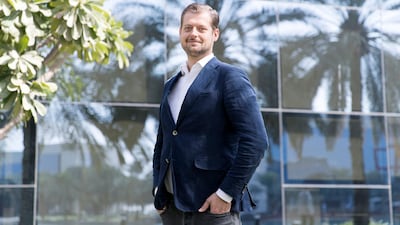Dismiss weather statistics for a moment and there are some similarities between the UAE and Finland.
The Nordic nation, ranked among the best on the Global Innovation Index, has a relatively small population, a high standard of living and, like the Emirates, punches above its weight in terms of global aspirations – not least in technology and smarter working.
Born of the latter, Reaktor is a global strategy, design and engineering firm offering broad ranging digital products and services.
Founded in Helsinki in 2000, it is among Finland’s top tech companies, and last year added Dubai’s Internet City to a string of offices around the world.
One reason for this success has been innovative methodology; Reaktor was a pioneer of agile working and thrives on swift creation through small, highly skilled, curious teams.
That abandons traditional company hierarchy models for a structure that allows teams autonomy to develop solutions without constantly seeking permission from the top.
The method breathes freedom to innovate at speed and is how some of the world's most successful tech firms now operate, such as Angry Birds developers Rovio, also Finnish.
Reaktor essentially provides bespoke digital solutions to public and private sector challenges - anything from online platforms for retailers, to enabling cities to alleviate congestion using AI technologies, such as driverless ferries. It also has a space programme.
Tuukka Konttinen, chief executive of Reaktor - Middle East and Africa, reveals why the firm is in Dubai.
What attracted Reaktor to the UAE?
The aspiration level here is really high, probably the highest in the world when it comes to innovation. We have a Ministry of AI, a Ministry of Happiness, plus a lot of new initiatives that, from a European perspective, are pretty futuristic. If you genuinely have the skills to deliver real innovation, there’s a lot of opportunity here.
How does Reaktor approach innovation?
We have a very flat structure and innovation-friendly culture. We hire people that don’t fit traditional organisational structure, people that want to achieve – not climb a career ladder. We care about people’s talent and ideas, not their titles. Innovation can’t be forced. As well as creating a safe environment to generate ideas, we actively encourage a healthy work life balance to help people stay at their best. Our culture helps attract really talented people, allowing us to build cross-disciplined, eclectic and fully autonomous teams. We give them the freedom to follow their curiosity – that’s how we get to the best ideas faster.
Is existing demand for digital services being met?
There’s a very sales-driven tradition in the region, offering ‘off the shelf’ solutions. There’s been little to no culture of buying tailor-made, or bespoke solutions. People have been trying to fix problems with an existing product that isn’t specifically designed for that issue. Essentially, when you’re looking to solve extremely complex problems, you need a different approach - that's what we're here to do.
_______________
Read more:
We need a generation of creators not builders, says Khalifa University's reforming dean
Dutch centre that produces energy from seaweed collaborating with the UAE
_______________
What needs to happen to further innovation in UAE?
There are many unwritten rules built into the culture of hierarchical organisations; these shape decision making in ways that makes innovation harder. Some of the biggest innovations in the world happened in ‘sandbox’ environments; safe environments where people freely share ideas and take them forward without worrying about how it’ll be received by the boss. If people are scared of doing something wrong you can’t expect their best ideas. If you want agile innovation, you need to ditch the ‘right first time’ approach, take risks and prototype early.
Can the UAE be a global leader in innovation?
Digitalisation is relatively new here but the speed at which it’s growing is massive. This country is a world leader in digital consumption, with huge demand for high-quality services. Innovation can happen quickly here, the user base already exists, so we don’t have to create demand; we just need to create the world-class services they want.
Which sectors are leading innovation in the UAE and how?
The Government and some banks are doing well – they have the money to invest and have taken the ‘sandbox’ approach, allowing teams to operate autonomously and separate to the parent company. We’re also seeing leadership that’s willing to cannibalise their existing business to create new services that might overcome hurdles faced by the old ones.
Is there enough digital talent to go round in the UAE?
Finding good digital talent is hard anywhere in the world - one of our biggest tasks is finding people suitable for us. There are still a lot of talented people out there, especially those who don’t fit into the traditional organisational culture, who’d rather be freelancers or work in a company like Reaktor. The biggest strength in the UAE is there are no boundaries when it comes to vision. If you’re an experienced digital professional, you can work on super ambitious ‘greenfield’ projects here that aren't as easy to come across in other parts of the world.
What are the biggest differences in doing business here compared to Finland?
I’d say the role of relationships plays a much more significant role. Nordic countries tend to be very work and subject orientated, so it’s all about cutting to the chase and focusing on the matter at hand. Here it’s relatively more flexible and more time has to be spent cultivating and building relationships. One of the major benefits here is things can be less process-orientated than in western markets.

